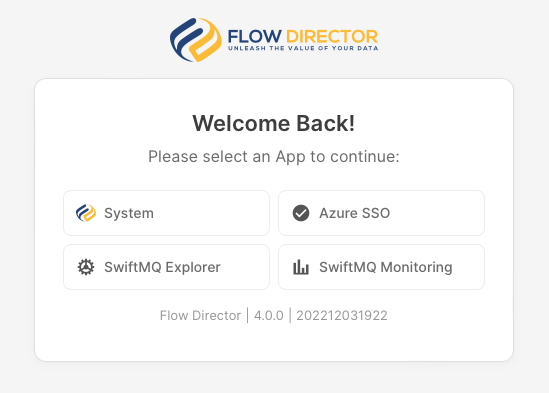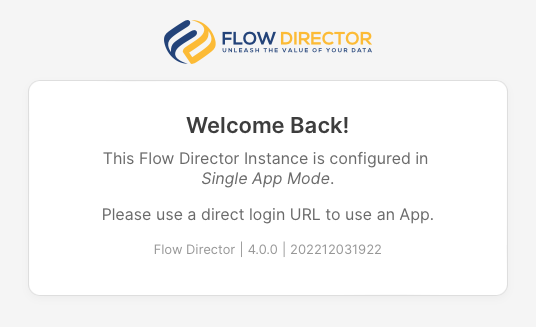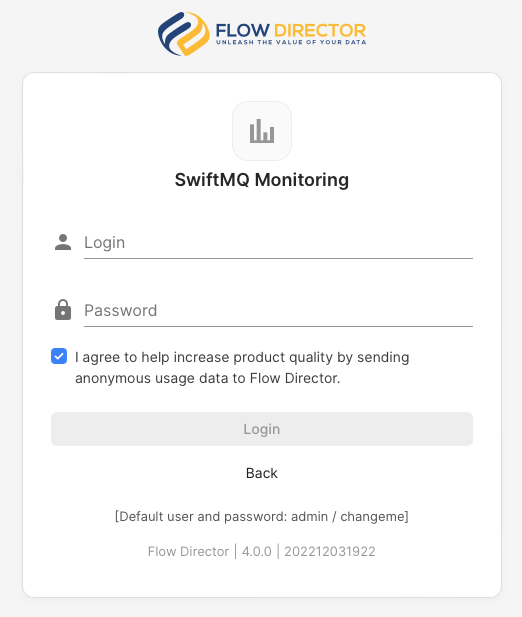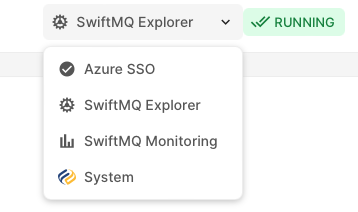Release 4.0.0
Visible Changes in Flow Director
This release provides a new start page that integrates the App selector. In multi-app mode it looks like this:

In single-app mode where users shouldn’t see which Apps are installed, it looks like this:

The direct login must then be used, for example:
http://localhost:8080/?app=swiftmqexplorer
The login page is now per App:

A new App Switcher has been added to the App’s toolbar to switch between Apps easily. It is only visible in the default multi-app mode or in the single-app mode for admin users:

The client token is stored in the browser’s local storage. You don’t need to re-login if you switch Apps.
New App: Azure SSO
This new App provides Single-Sign-On for any Flow Director App through Microsoft Azure Active Directory. It handles the whole OAuth 2.0 Flow for Apps deployed on a Flow Director instance. The App requires Flow Director 4.0.0 or later.
Read more here.
Connect multiple Standalone SwiftMQ Routers
Standalone routers are intended to run standalone. If you connect them to Flow Director in embedded mode you will create a router network and network-wide pub/sub where all topics of the same name are connected. So users have deployed one Flow Director instance per standalone router and have spent one or more App licenses for that.
This is not necessary anymore. You can connect standalone routers and also separated router networks without influencing each other and save license costs if you follow these instructions:
Connecting multiple Standalone SwiftMQ Routers
Release Notes
Bugs
FD-1414 SwiftMQ Explorer App: Remove AppLog entry for exceptions on "Service for <key> not found"
Tasks
FD-1393 Test and Upgrade to Rappid Library 3.6.1
FD-1394 Test and Upgrade to GraalVM 22.3
FD-1396 Convert current START page into App Selector page
FD-1397 Create Login page per app
FD-1398 Add App Switch Button to App toolbar
FD-1399 Store clienttoken in local storage
FD-1400 Remove clienttoken from local storage when user clicks Exit (Logout) button
FD-1401 Auto-login a user if a clienttoken was found in local storage
FD-1402 Implement login with clienttoken at FD server
FD-1406 Implement OpenID auth flow in Frontend
FD-1409 Single-app-mode: Show app switch for admins only.
FD-1411 New SSO App: Azure SSO
FD-1412 Implement SSO Hooks in FD Server
FD-1413 Enhance App Setup with REST routes
